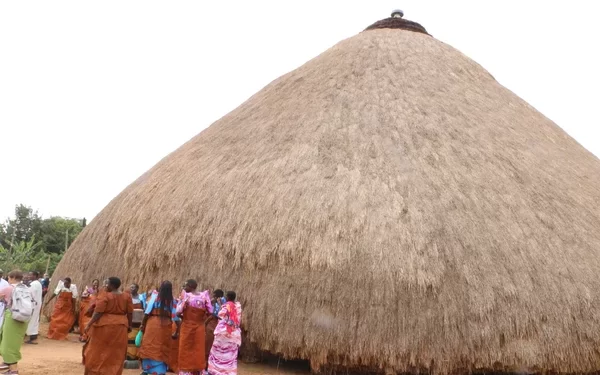BY AFP. RIYAD. The UN cultural agency UNESCO announced Tuesday it was removing the fire-damaged tombs of royal leaders in Uganda from its endangered heritage list, voicing satisfaction with restoration efforts.
Katikkiro Charles Peter Mayiga said restoration was supported by multiple governments but said huge sponsorship was availed by the local people but it took long to ensure all traditions were met.
The decision on the Tombs of Buganda Kings was passed by the World Heritage Committee at a meeting in the Saudi capital Riyadh from September 10-25.

Housed in grass-thatched buildings on a hillside in the capital Kampala, and revered as an important historical and spiritual site for the Baganda people, the tombs were declared a UNESCO World Heritage Site in 2001.
But a 2010 fire devastated the site, and it was placed on the danger list while reconstruction began with the help of international funding. It was completed in the summer of 2023 “allowing the site to return to its desired state of conservation”, UNESCO said in a statement.
“This reconstruction is a collective success: that of the Ugandan authorities, Ugandan heritage professionals, but also the local communities who were at the heart of the process,” said UNESCO director-general Audrey Azoulay.
Ahead of the decision, UNESCO had said removing the tombs from the endangered list would be a powerful symbol given that 50 percent of sites considered in danger are in Africa.
The fire destroyed a main tomb building described as an “architectural masterpiece” but UNESCO said it was happy with the restoration and that of other iconic structures.
“It was also satisfied with the establishment of an advanced fire-fighting system and the training of volunteer firefighters among residents in order to prevent such a tragedy from happening again.” Uganda’s tourism minister Martin Mugarra told AFP the restored tombs would be reopened to visitors.
“It is an exciting moment for the country, and those who cherish culture and our heritage,” he said. Buganda, one of four ancient kingdoms in the East African country, was first established in the 14th century on the shores of Lake Victoria and includes Uganda’s modern-day capital.
The Baganda make up the largest ethnic grouping in Uganda and their kingdom was granted considerable autonomy after independence from Britain in 1962.
But independence leader Milton Obote went on to outlaw the tribal kingdoms and forced the Kabaka into exile.
Museveni still rules today, but relations between the Baganda people and the government have been strained in more recent times.



